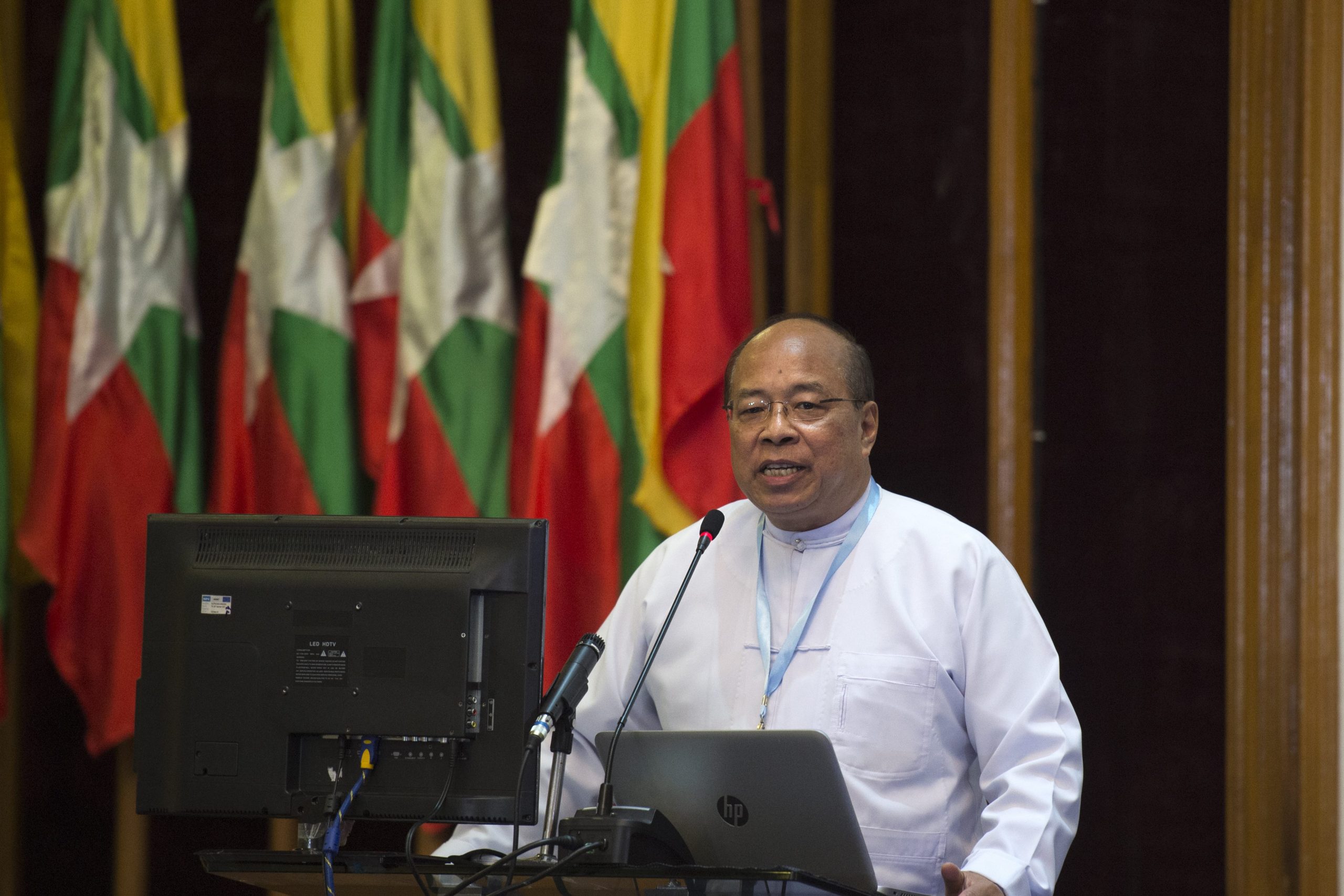Speaking at the National Peace and Reconciliation Centre in Rangoon, National Security Adviser Thaung Tun defended the government’s approach, saying it had “bent over backwards to move the situation forward.”
Following surprise 9 October attacks against border police outposts in northern Arakan State, the military swiftly initiated a “clearance operation” to apprehend the assailants. The militants are believed to have been members of a newly formed Islamic extremist group, Harakah al-Yaqin (Faith Movement).
But accusations of rampant human rights abuses perpetrated by the military, including rape and the razing of Rohingya Muslim homes, quickly followed. State Counsellor Aung San Suu Kyi and her government have long denied any wrongdoing by security forces, except in one instance of leaked footage in which police were seen beating detained Muslim men.
Thaung Tun said the government wanted to send the message that it is “not oblivious to the plight of the Rohingya,” but highlighted the “constraints” associated with the troubled region and echoed Suu Kyi’s strident denial that the treatment of the Rohingya population and the exodus of approximately 74,000 Muslims into neighbouring Bangladesh amounted to ethnic cleansing.
“There is no ethnic cleansing of the Muslim minority in Rakhine [Arakan State],” he said, instead characterising the turmoil as a struggle between communities in a desperately poor region. He added that the government was stuck between “the devil and the deep blue sea,” referring to an ongoing national verification process.
According to the national security official, authorities are focused on addressing the stateless status of Rohingya Muslims in Arakan State. He said that while Muslims initially were engaged in the documentation programme, they “became less enthusiastic within a short while because of the international concern.” Thaung Tun added that the local Arakanese population is fearful of “ineligible Muslims” acquiring citizenship.
“We want to resolve the issue of statelessness, but we need the cooperation of all stakeholders for us to move forward,” he said.
The remarks come about a week after Suu Kyi gave a rare televised interview to the BBC. In her defence of the government’s first year in power, she pushed back against accusations that the military had committed grave human rights violations with impunity in the troubled region. Despite being constitutionally barred from the presidency, the state counsellor, who also serves as foreign minister, is Burma’s de facto leader and has drawn the majority of international condemnation in the aftermath of 9 October.
In March, the United Nations human rights body decided to send a team to Arakan State on a “fact-finding mission,” with a mandate to investigate allegations of rights abuses and security force brutality.
Speaking in Geneva at the time, Burma’s ambassador to the UN registered Naypyidaw’s objection to the resolution, describing such a mission as “not acceptable” and requesting that Burma be allowed to handle the matter internally. In a statement circulated to media after Tuesday’s press conference, Thaung Tun underscored the government’s denouncement of the UN plan, calling it “less than constructive.”
[related]
The national security adviser also put forward the increasing rates of returned Rohingya refugees and cited recent state-sponsored media tours of northern Arakan State as signs that the situation there is improving.
But a regional snapshot released by UNOCHA last week was not so effusive in evaluating the situation. Despite Thaung Tun’s assertion that humanitarian aid access has also opened up, the humanitarian coordination office of the UN said, “Humanitarian access for international staff remains severely restricted and permission to conduct a comprehensive needs assessment is an urgent priority.”
The UN High Commissioner for Refugees office told DVB on Tuesday that while “some limitations and constraints persist,” the UNHCR “has been able to deliver non-food items [NFIs] to more than 25,500 of the most affected individuals in the northern part of Rakhine [Arakan] State.”



